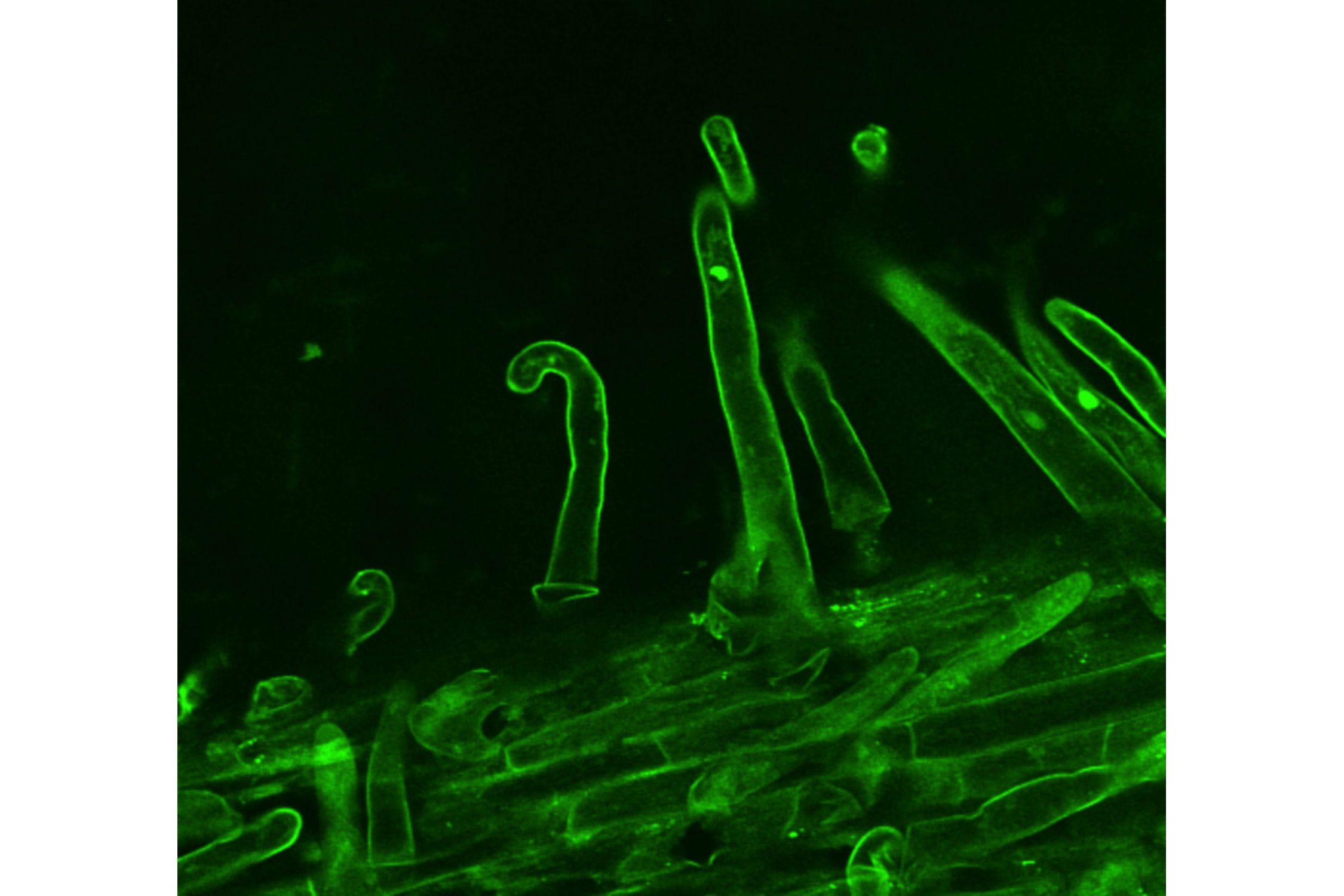UK researchers find new soybean pathway that responds to pathogenic and beneficial microbes
UK researchers find new soybean pathway that responds to pathogenic and beneficial microbes

University of Kentucky plant pathologists Aardra Kachroo and Pradeep Kachroo have discovered a new pathway that helps soybeans fight off diseases.
The UK College of Agriculture, Food and Environment researchers found that the pathway allows the legume to simultaneously fight off disease pathogens trying to infect the above-ground parts of the plant and fend off poor nitrogen-fixing bacterial strains in the root. Their findings recently were published in Nature Communications.
“In short, it’s like a two-for-one scheme. The plant spends energy making this one metabolite that can optimize which microbes get to form symbiotic relationships with the plant,” Aardra Kachroo said. “The knowledge that such signaling mechanisms exist is key for the development of agricultural products that can enhance disease resistance without negatively affecting the plant. The work also has implications for improved nitrogen fixation in plants.”
Incompatible interactions between nitrogen-fixing bacteria in plant roots activate the pathway. When non-desirable, nitrogen-fixing bacteria try to enter the plant, an unknown signal opens the pathway. This signal travels up the plant and promotes the production of the metabolite, glycerol-3-phosphate in the leaves. The production of glycerol-3-phosphate activates plant defenses against airborne pathogens. The leaf-generated metabolite then travels back to the root where it prevents the inefficient nitrogen-fixing bacteria from entering the plant.
The Kachroo labs have studied glycerol-3-phosphate for many years. In 2011, they identified it as a key mobile regulator of systemic acquired resistance, a highly desirable form of immunity which protects the whole plant against a wide range of pathogens.
Their recent research, which defines this root-shoot-root signaling mechanism, also shows how glycerol-3-phosphate travels throughout the plant in both systemic immunity and in response to beneficial microbes as well as the interconnectedness of the two plant responses.
In addition to the Kachroos, researchers on the project include M.B. Shine and Qing-ming Gao from UK and R.V. Chowda-Reddy and Asheesh K. Singh at Iowa State University.
The project was funded by the National Science Foundation’s Division of Integrative Organismal Systems, U.S. Department of Agriculture’s National Institute of Food Agriculture, Kentucky Soybean Promotion Board and Iowa State University.
Research


